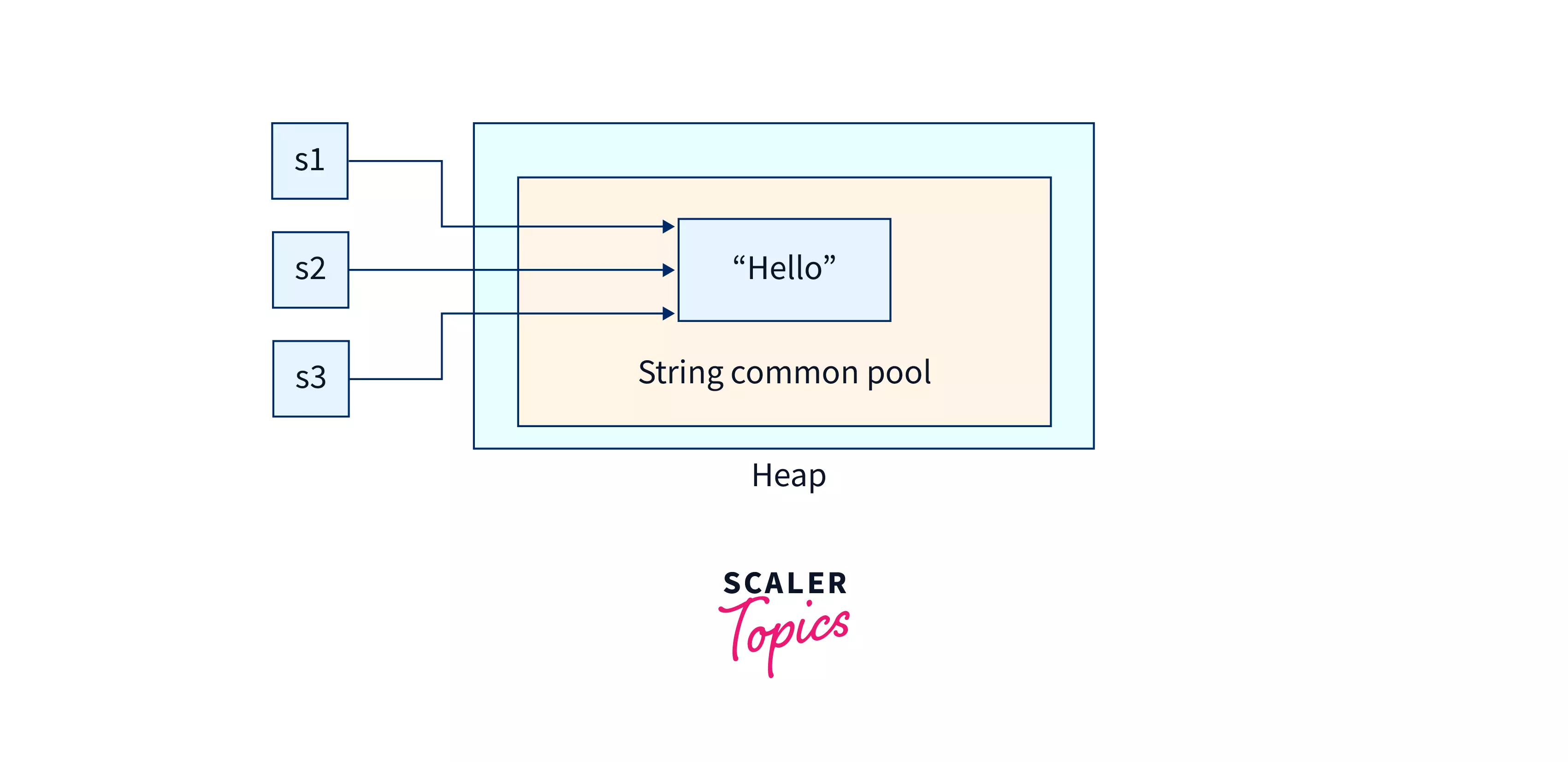What Is Immutable Strings and Just How It Works
In the world of programs, recognizing the concept of unalterable strings is critical for developing durable and safe and secure applications. Immutable strings describe strings that can not be changed after they are produced, making certain data honesty and predictability within the code. This essential principle plays an essential duty in various programming languages and uses a special approach to dealing with data. By exploring the details of just how immutable strings function, one can reveal a globe of advantages and opportunities that can elevate the high quality and effectiveness of software development.
The Essentials of Immutable Strings
Unalterable strings, as a basic idea in programming, are personality sequences that can not be transformed as soon as they are created. This means that as soon as a string is appointed a value, that worth can not be changed. In languages like Python and Java, strings are immutable objects, causing numerous effects in regards to memory monitoring and information honesty.
Among the vital advantages of unalterable strings is that they supply a sense of security in data manipulation. Given that the material of an unalterable string can not be modified, it makes certain that the original information continues to be undamaged, minimizing the risk of unintentional modifications during program implementation (Why are strings immutable in Java?). This residential or commercial property likewise streamlines debugging processes, as developers can trust that as soon as a string is defined, its value will not be inadvertently modified
When a brand-new string is produced based on an existing one, rather than modifying the original string, the new worth is stored separately. In general, understanding the basics of unalterable strings is crucial for understanding programs ideas and enhancing code efficiency.
Advantages of Immutable Strings
Building upon the protection and effectiveness advantages of unalterable strings, their benefits extend to improving code dependability and simplifying concurrent programs tasks. By being unalterable, strings can not be modified after development, which removes the danger of unintended changes in the information they save. This intrinsic immutability makes sure that when a string is created, its worth remains constant throughout the program's implementation, reducing the opportunities of pests triggered by unanticipated modifications.
In addition, immutable strings add to code dependability by making it easier to reason concerning the state of a program. Since strings can not be altered, developers can trust that a string will constantly hold the same worth, simplifying debugging and upkeep initiatives. This predictability causes more secure and dependable codebases.
Application in Programming Languages
Within numerous shows languages, the consolidation of unalterable strings is a basic element that affects how information is managed and manipulated within code frameworks. The implementation of immutable strings varies throughout different programming languages, with each language offering its own mechanisms to sustain this concept.

On the other hand, languages like C and C++ do not have integrated assistance for unalterable strings. Designers in these languages must manually implement immutability by enforcing guidelines within their code to avoid direct adjustments to string objects.
Ideal Practices for Working With Unalterable Strings
When handling immutable strings in programs languages like Java and Python, adhering to best methods makes certain protected and effective data control. One of the key finest practices is to make use of StringBuilder or StringBuffer as opposed to straight manipulating strings, especially when dealing with substantial concatenation operations. These courses give mutable choices for string manipulation, aiding to prevent unnecessary memory allowances and improving performance.
Furthermore, when functioning with sensitive information such as passwords or API keys, it is critical to prevent storing them as ordinary text in unalterable strings. Making use of safe storage devices like char arrays or specialized libraries for taking care of sensitive details assists mitigate safety and security dangers associated with immutable strings.
Real-world Applications and Instances
Discovering functional implementations of unalterable strings in various sectors discloses their considerable impact on data honesty and system integrity. In the healthcare market, unalterable strings play a critical function in ensuring the security and privacy of client information. By avoiding unauthorized alterations to delicate details such as clinical records and prescriptions, unalterable strings aid keep conformity with rigorous privacy laws like HIPAA.
Banks also profit from the immutable nature of strings to boost the protection of consumer information and deal documents. Unalterable strings help avoid fraudulence and unauthorized alterations to economic details, supplying a durable defense against cyber threats and guaranteeing the depend on and confidence of clients.

Verdict
Finally, unalterable strings are dealt with and unchangeable sequences of personalities that provide advantages such as thread safety and security and enhanced performance in programs. They are carried out in numerous programs languages to make certain data integrity and safety and security. Best practices for collaborating with unalterable strings include preventing direct adjustments and utilizing methods that return new string objects. Real-world applications of immutable strings consist of information file encryption, caching, and string adjustment tasks.
Unalterable strings refer to strings that can not be altered after they are created, ensuring data stability and predictability within the code. When a new string is created based on an existing one, rather than modifying the initial string, the new worth is kept individually.In languages like Java and Python, strings are unalterable by default, suggesting that as soon as a string things is developed, its worth can not be transformed - Why are strings immutable in Java?. Best techniques for functioning with immutable strings include preventing direct adjustments and making use of methods that return brand-new string objects. Real-world applications of unalterable strings include data file encryption, caching, and string adjustment tasks